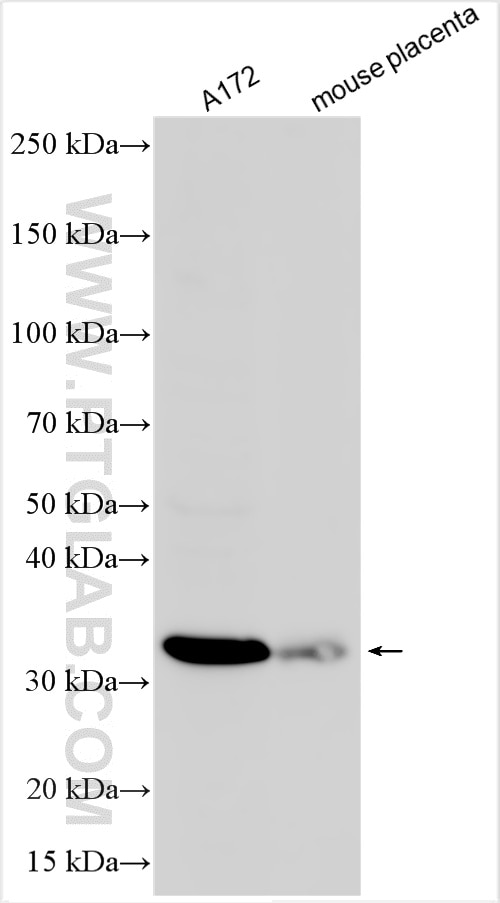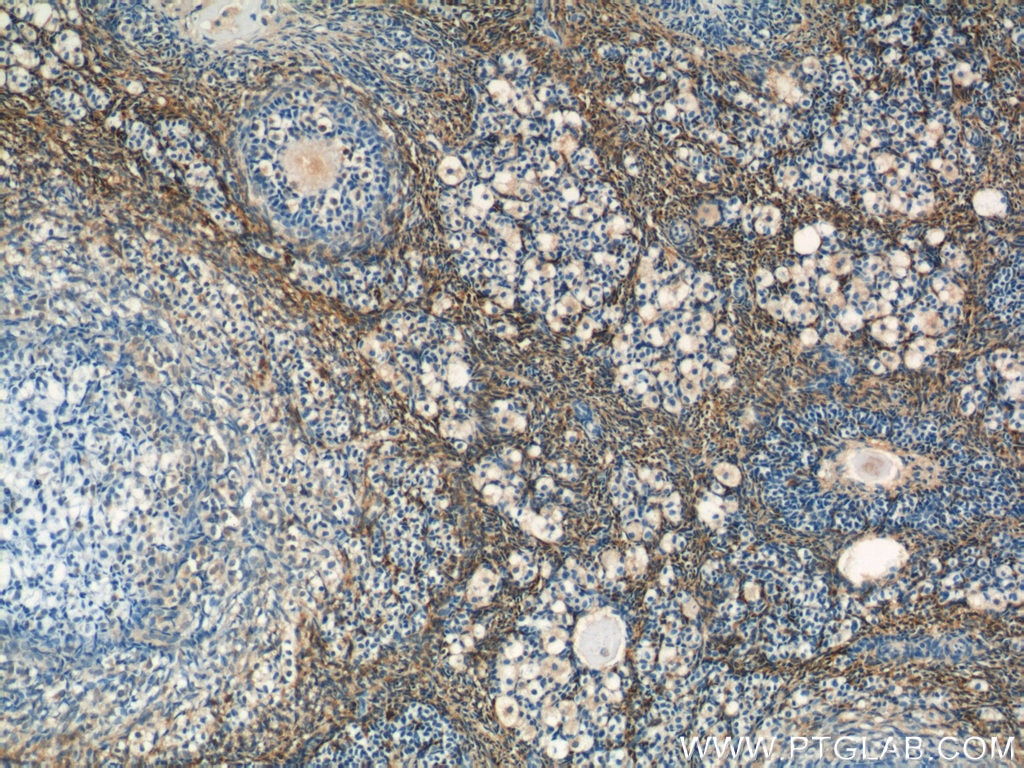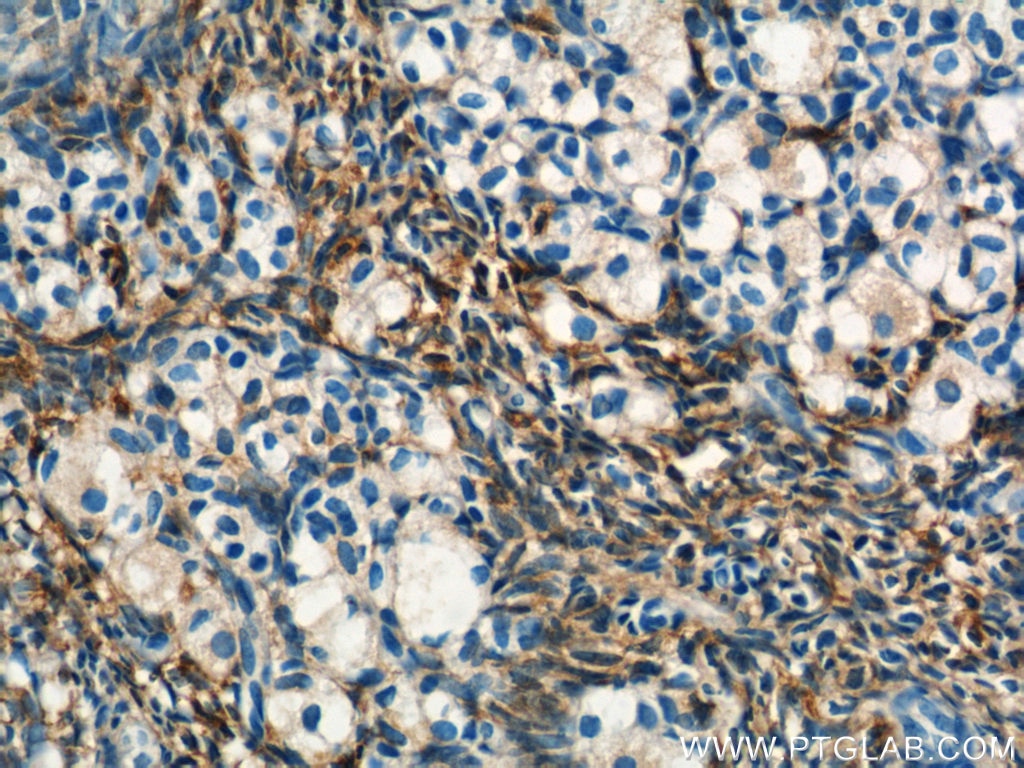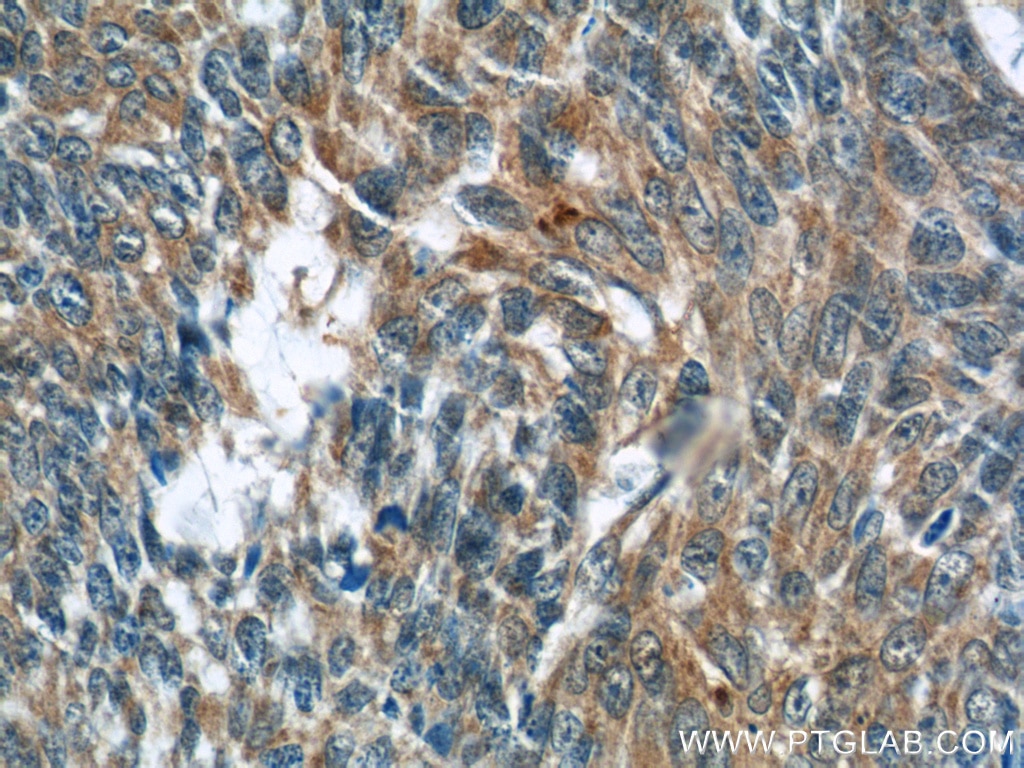Anticorps Polyclonal de lapin anti-Asprosin
Asprosin Polyclonal Antibody for WB, IHC, ELISA
Hôte / Isotype
Lapin / IgG
Réactivité testée
Humain, souris
Applications
WB, IHC, ELISA
Conjugaison
Non conjugué
N° de cat : 20251-1-AP
Synonymes
Galerie de données de validation
Applications testées
| Résultats positifs en WB | A172 cells, mouse placenta |
| Résultats positifs en IHC | tissu ovarien humain, il est suggéré de démasquer l'antigène avec un tampon de TE buffer pH 9.0; (*) À défaut, 'le démasquage de l'antigène peut être 'effectué avec un tampon citrate pH 6,0. |
Dilution recommandée
| Application | Dilution |
|---|---|
| Western Blot (WB) | WB : 1:200-1:1000 |
| Immunohistochimie (IHC) | IHC : 1:20-1:200 |
| It is recommended that this reagent should be titrated in each testing system to obtain optimal results. | |
| Sample-dependent, check data in validation data gallery | |
Informations sur le produit
20251-1-AP cible Asprosin dans les applications de WB, IHC, ELISA et montre une réactivité avec des échantillons Humain, souris
| Réactivité | Humain, souris |
| Hôte / Isotype | Lapin / IgG |
| Clonalité | Polyclonal |
| Type | Anticorps |
| Immunogène | Peptide |
| Nom complet | fibrillin 1 |
| Masse moléculaire calculée | 30 kDa |
| Poids moléculaire observé | 32 kDa |
| Numéro d’acquisition GenBank | NM_000138 |
| Symbole du gène | Fibrillin 1 |
| Identification du gène (NCBI) | 2200 |
| Conjugaison | Non conjugué |
| Forme | Liquide |
| Méthode de purification | Purification par affinité contre l'antigène |
| Tampon de stockage | PBS with 0.02% sodium azide and 50% glycerol |
| Conditions de stockage | Stocker à -20°C. Stable pendant un an après l'expédition. L'aliquotage n'est pas nécessaire pour le stockage à -20oC Les 20ul contiennent 0,1% de BSA. |
Informations générales
Asprosin is a hormone derived from fibrillin-1 that plays a role in regulating glucose metabolism and appetite. It's released by adipose tissue during fasting and stimulates the liver to release glucose into the bloodstream, ensuring energy availability. Asprosin also influences appetite and body weight by acting on neurons in the hypothalamus. It has been linked to various metabolic diseases, including obesity, type 2 diabetes, and polycystic ovary syndrome (PCOS). The detected molecular size is consistent with that in the article PMID: 35079041.
Protocole
| Product Specific Protocols | |
|---|---|
| WB protocol for Asprosin antibody 20251-1-AP | Download protocol |
| IHC protocol for Asprosin antibody 20251-1-AP | Download protocol |
| Standard Protocols | |
|---|---|
| Click here to view our Standard Protocols |





